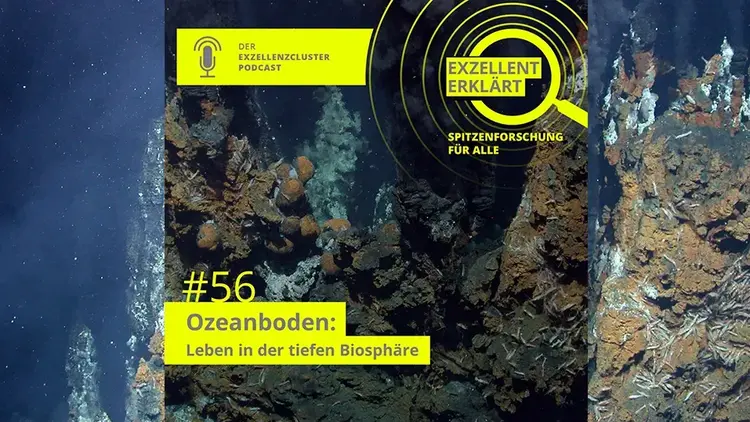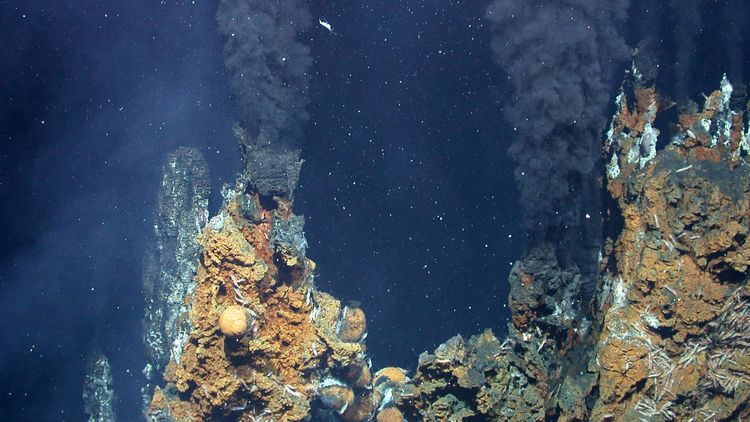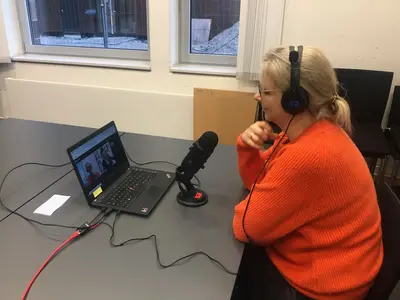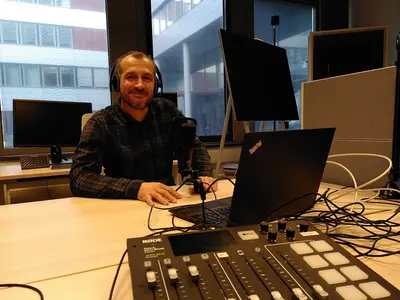Joint press release by MARUM – Center for Marine Environmental Sciences at the University of Bremen and the Institute for Chemistry and Biology of the Marine Environment (ICBM) at the University of Oldenburg
The deep sea fascinates scientists all over the world. What happens under extreme conditions on the ocean floor? What role does the ocean floor play in the global carbon cycle? Answers to these and many other questions are provided in the latest episode of the science podcast “Exzellent erklärt – Spitzenforschung für alle” entitled “Leben in der tiefen Biosphäre” (Life in the deep biosphere).
The podcast on current scientific topics reflects the research diversity of the Clusters of Excellence: from African Studies to the Future of Medicine. In each episode, listeners can expect insights into the interdisciplinary work of a research cluster. The scientists from the Clusters of Excellence talk to podcaster Larissa Vassilian about how they want to find scientifically sound answers to relevant topics of our time. This time, the podcast visits the Cluster of Excellence “The Ocean Floor – Earth's Uncharted Interface” at MARUM – Center for Marine Environmental Sciences at the University of Bremen. There, the presenter talks to two researchers: Dr. Florence Schubotz, biogeochemist at MARUM, and Dr. Michael Seidel, scientist at the Institute for Chemistry and Biology of the Marine Environment (ICBM) at the University of Oldenburg. Together they will provide exciting insights into their research on organic material in the ocean and the mechanisms that influence the marine ecosystem.
A black box in the global carbon cycle
A central aspect of the episode is the global carbon cycle. The researchers explain how dissolved organic matter is stored in the ocean, what role it plays for microorganisms and how the carbon content of the ocean has changed over thousands of years. Particularly fascinating is the discovery that some organic molecules in the ocean are up to 20,000 years old – an important piece of the puzzle for understanding past and future climate change.
Black carbon and the deep sea as a carbon reservoir
Another topic is so-called “black carbon”, a stable form of organic material produced by incomplete combustion. Researchers have been able to prove that this not only enters the ocean from land, but is also formed directly on the seabed by hydrothermal vents. The findings could help to better understand the long-term storage of carbon in the ocean – and thus make a contribution to climate research.
Climate and environmental regulator
The episode impressively demonstrates how closely life in the deep sea is linked to global environmental issues. The ocean stores huge amounts of carbon, regulates the climate and supplies the atmosphere with oxygen. However, many processes in the deep sea are still not understood.
At the Universities of Bremen and Oldenburg, scientists from various disciplines are researching the effects of global warming on the marine ecosystem. The Cluster of Excellence “The Ocean Floor – Earth's Uncharted Interface” at MARUM has submitted a follow-up application together with the University of Oldenburg, which is already a partner in the current Cluster of Excellence. The two universities want to combine their strengths.
“Leben in der tiefen Biosphäre” is now available at https://exzellent-erklaert.podigee.io/.

![[Translate to English:]](/f/5/_processed_/3/2/csm_ICBM-Logo-transparent-_91fe1c6774.png)



